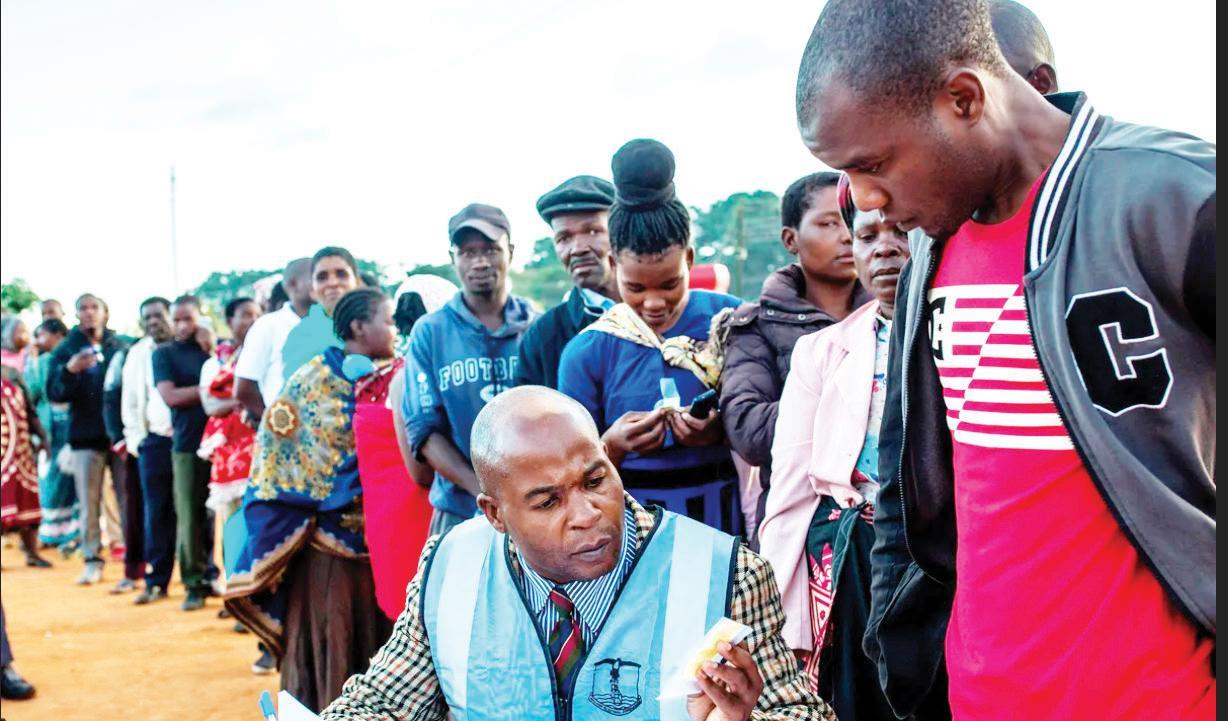Africa-Press – Malawi. The Northern Alliance Block, consisting of three political parties led by leaders from the Northern Region, has failed to achieve its goal of forming a national alliance as a bloc.
This development comes as presidential candidates begin submitting their nomination papers to the Malawi Electoral Commission (Mec) today.
KACHALI—FP is not part of the agreed allianceThe alliance, which includes the National Development Party (NDP) led by Frank Mwenefumbo, Khumbo Kachali’s Freedom Party and the Solidarity Alliance led by Victor Madhlopa, “has entered into a political agreement” with the Democratic Progressive Party (DPP), whose presidential candidate is former president Peter Mutharika.
According to a statement signed by DPP chairperson of the Alliance Negotiating Committee, George Chaponda, and Madhlopa, the Lead Negotiator for the Northern Alliance Block, the alliance was formed to rescue Malawi from the deepening socio-economic crisis that has paralysed almost all sectors.
Madhlopa confirmed the agreement in an interview, but insisted that more details will be revealed soon.
However, Kachali has said he is not part of the alliance, as his party was apparently not involved in the discussions.
“I was informed about the discussions but did not attend because I was told that Mutharika was not part of the negotiating team. So, FP is not part of the agreed alliance,” Kachali said.
Mwenefumbo said he was aware of the agreement but is waiting for the NDP’s National Executive Committee to give its endorsement.
“The NDP executive committee is meeting on Thursday [today] to take a stand,” Mwenefumbo said.
An inside source has revealed that Mwenefumbo intends to run independently.
Mzuzu University historian and political analyst Chrispin Mphande believes the alliance has failed because its leaders lack a clear ideology.
Mphande said the alliance was formed to unite smaller parties and present a single voice to those with majorities in the Central and Southern regions, as a strategy to achieve the 50 percent plus one vote needed to win.
“These are small parties that clearly know they cannot succeed on their own. So, it is about seeking opportunities, not ideology.
“They believe that by joining DPP, they may be offered positions. The whole issue is not about nation building, but about what they can gain from this,” Mphande said.
Speaking recently at a rally in Karonga, former Speaker of Parliament Richard Msowoya advised the leaders to aim for ministerial positions when negotiating with other parties.
Meanwhile, by press time Wednesday, governing Malawi Congress Party (MCP), UTM Party, United Democratic Front (UDF) and People’s Party (PP) had not announced any possible alliance on their part.
Mec is today expected to start receiving nomination papers from presidential aspirants as their formal declaration to contest in the elections.
The first to present nomination papers is PP leader Joyce Banda.
During the launch of her party’s manifesto in Lilongwe on Tuesday, Banda reaffirmed her intention to contest the election.
Mutharika is expected to present his papers on Friday, July 25, while Atupele Muluzi of UDF is scheduled for Saturday, July 26, and UTM’s Dalitso Kabambe will submit his papers on Sunday, July 27 at 9am.
Vice-President Michael Usi, who also leads the Odya Zake Alibe Mlandu Party, is expected to present his nomination on Tuesday, July 29.
President Lazarus Chakwera, leader of MCP, is set to submit his papers on the final day, Wednesday, July 30.
For More News And Analysis About Malawi Follow Africa-Press






